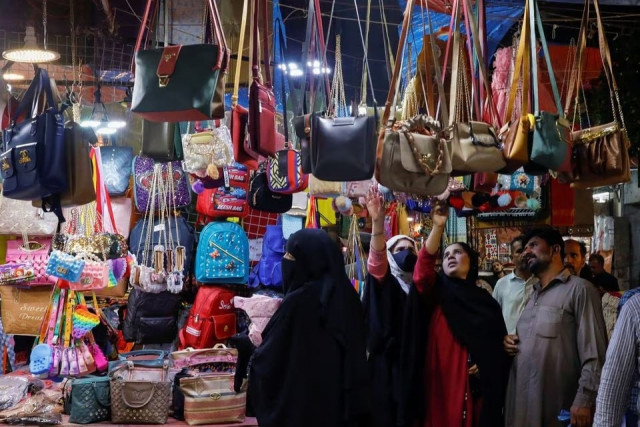Retailers warn of Rs3.5tr loss in sales
Fiercely oppose govt’s decision of early market closure

Retail store chains in the country, while opposing the government’s decision of early market closure, have proposed alternative measures to ensure balanced energy conservation.
They caution that any reduction in retail peak hours will slash their revenue by 30% and cause sales losses of Rs3.5 trillion. Besides, about Rs300 billion may be lost in general sales tax and income tax collection compared to electricity savings of less than Rs62 billion annually under the new energy conservation steps.
Chainstore Association of Pakistan (CAP) Chairman Tariq Mehboob Rana, in a letter written to Federal Minister of Energy and Power Muhammad Ali, Federal Minister of Commerce Gohar Ijaz and provincial Industries Minister SM Tanveer, denounced the government’s recent decision, saying it was based on unfounded claims of Rs62 billion in annual savings.
Read Marketplaces deserted as inflation bites hard
Rather, he said, the measure would prove counterproductive and cause a significant plunge in revenues for retail businesses, where tier-1 retailers were connected with the Federal Board of Revenue (FBR)’s Point of Sales (POS) system.
Such a sharp dip in sales would lead to national economic loss of several hundred billion rupees, while indirect impact on the economy may be much larger, he said.
“On behalf of the entire retail community, we request a review of our proposals before making final decision on timings for retail activity.”
The association proposed the constitution of a committee comprising representatives of all stakeholders such as the provincial energy departments, All Pakistan Textile Mills Association (Aptma) and CAP to examine the issue from all perspectives and reach an amicable solution.
It warned that excessive timing reduction was feared to cause a big loss to the economy amounting to over $15 billion and over Rs300 billion drop in overall tax generation, contrary to savings of $279 million per annum, as estimated by the Power Division.
The retailers lent their support to energy conservation amidst the current economic environment, but were concerned over the matter under consideration between the federal and provincial governments to restrict retail timings to the sunset.
Also read Weekly inflation hits three-week high
In the letter, CAP pointed out that 50% of retail sales were made during winter months and the closure of shops at 7 or 8pm would lead to the collapse of the retail sector with domino effect on the economy and tax revenues.
With recent devaluation of the rupee, it emphasised, it was an opportunity for traders to go for import substitution, reduce reliance on imports and even export to global supply chains.
Pakistan has a warm weather and energy consumption is higher in the day for commercial enterprises due to the use of air conditioners. However, according to the association, most retail stores have energy-efficient lighting and cooling systems.
The retailers said that the economy, which relied heavily on the retail sector, generated Rs1.69 trillion and Rs1.53 trillion in sales tax and income tax, respectively, as per FBR’s figures. “It is expected that a 30% reduction in retail activity will impact 10% of tax generation across the value chain, ie over Rs300 billion.”
They further cautioned that the retailers may move to a single shift, resulting in a loss of 35% workforce, or three to four million people.
“The organised and tax-compliant retail sector is being severely impacted by this decision as costs have increased nearly 40% due to rupee devaluation and the resulting inflation.”
It called 8-10pm as peak hours for sales because the retail sector was dependent on local consumers, who reach home from work around 7-8pm and then visit retail stores.
“If retail shops are closed at 8pm, we will suffer a loss of over 30% while all costs remain the same. Unlike foreign countries, we do not have international tourism and associated retail revenues.”
Published in The Express Tribune, September 10th, 2023.
Like Business on Facebook, follow @TribuneBiz on Twitter to stay informed and join in the conversation.



















COMMENTS
Comments are moderated and generally will be posted if they are on-topic and not abusive.
For more information, please see our Comments FAQ